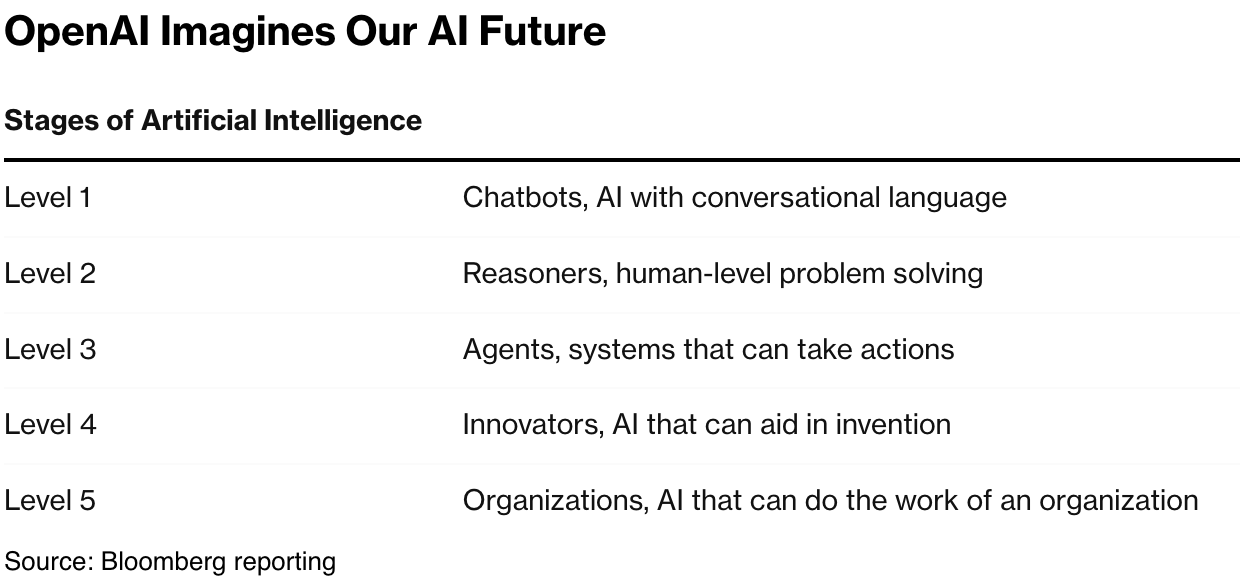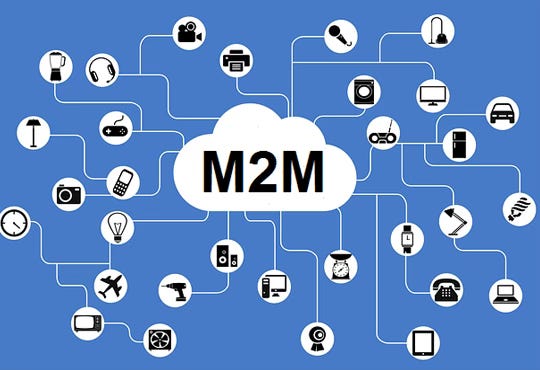
AI: AI Agents not designed for our current Internet. RTZ #702
The Bigger Picture, Sunday April 27, 2025
Despite the relentless progress in AI technologies in this AI Tech Wave, it’s important to note how much work there is ahead for AI to really do its thing going forward. A case in point is how AI Agents may be thwarted by the way the internet today is built, mostly for humans. To be protected against mostly harmful AI Bots. And how emerging AI tools are barely up to the task of navigating around those issues. That is the The Bigger Picture I’d like to unpack this Sunday.
The Information hints at the magnitude of the task ahead in “AI Agents Fall Short on Shopping”, just in the narrow domain of ecommerce:
“Artificial intelligence heavyweights including OpenAI and Perplexity, along with commerce giant Amazon, are painting visions of AI tools acting as personal shoppers that can seamlessly buy stuff across the internet.”
“But the handful of AI agents that have so far been released have had trouble with online shopping, since they’re easily tripped up by variations in retailers’ product listings and checkouts, investors and founders say. It’s also tough for retailers to distinguish between an agent and a malicious bot, so some merchants are more inclined to block AI tools from checking out rather than make their sites friendlier for AI to navigate.”
A fundamental issue is that today’s internet is built on the assumption that computer bots are mostly doing undesirable things on various ecommerce sites.
“Meanwhile, some startups that aim to streamline everyday tasks for users are holding back from even trying to use AI tools to actually make many online transactions.”
“There are still a lot of instances where AI can’t make the transaction, or it can’t scrape information off a website, or you’re trying to deal with a small business or a mom-and-pop shop that is not AI optimized,” said Meghan Joyce, founder and CEO of Duckbill, a personal assistant startup that helps users in part by using AI.”
They’re talking about AI Agents as they’re envisioned today, as the Level 3 step of AI, on the roadmap to AGI:
This startup Duckbill’s approach is illustrative of the challenges ahead on AI Agents being able to shop for humans as currently imagined:
“Duckbill, which raised $33 million from investors including Forerunner Ventures and General Catalyst in mid-2023, uses AI to come up with ideas and shopping lists, not to place orders. For instance, Duckbill’s chatbot can help users plan a dinner party menu, but Duckbill’s human employees browse for items on Instacart and place the grocery order.”
“Knowing that the world is not yet optimized for AI agents and will probably take a while before we get there, we have the flexibility to hand the baton between the two—AI and humans,” Joyce said.”
And that’s an issue because AI Agents being able to buy things for humans on the internet is generally the first example every AI demo pulls out of their ‘AI bag of tricks’:
“In recent months, automated shopping and booking services have emerged as a new battleground among some AI and tech giants. Shopping represents a big part of online activity and potential source of revenue for AI companies—including from charging shoppers fees or taking a cut of sales funneled to retailers—and AI agents could disrupt traditional e-commerce sites and apps if they catch on.”
The industry AI leaders have all being working on this with examples:
“But it’s early days for AI agents and shopping. Perplexity late last year launched a Buy With Pro feature that can purchase certain items via its premium AI search browser. In January, OpenAI launched Operator, an AI agent tool to take care of tasks including shopping for ChatGPT Pro subscribers, who pay $200 per month for the Pro service. Earlier this month, Amazon launched the Buy For Me feature, described as a beta service, which can purchase some products listed on sites outside the company’s own via the Amazon app.”
They all aspire to “Buy tickets”.
“Some efforts have failed to get off the ground. Google, for instance, scrapped plans for a trip-planning agent that could book tickets, releasing a simpler itinerary-building tool instead, The Information previously reported.”
“Navigation Challenges”
“Chris Andrew, co-founder and CEO of Scrunch AI, is helping retailers such as Skims understand how AI search engines and agents behave when they come to their sites. He’s part of a new crop of startups and consultants looking to help online retailers optimize for AI tools.”
“According to Andrew, few retailers are thinking about how to encourage agent purchases. “The first round of agents that exists is already here, and it’s just the crawlers trying to make sense of content,” he said.”
And they run into obstacles almost immediately:
“For instance, Andrew said he’s seen OpenAI’s Operator struggle with comparison shopping on financial products—when he asked the agent to compare rates, it had trouble with long tables of products that had a different interest rate listed for each, he said. An OpenAI spokesperson referred to the company’s public posts about Operator and the Computer-Using Agent model.”
The list of issues is almost unending in an internet designed for humans, and not for machine to machine (m2m) traffic.
“Agents can also get tripped up by pop-ups or logins, as well as prompts asking for email addresses and phone numbers for marketing purposes. OpenAI says in its terms of service that it hands Operator controls back to the user to complete the action if it encounters a challenge like a password request or a captcha field.”
“AI shopping tools can also struggle to make sense of key product information, such as pricing and sizing. “If that pricing is buried in a JavaScript drop-down, [agents will] make up a price and return the wrong price,” Andrew said.”
“Brands can also frequently change prices—particularly around promotional periods and, more recently, to contend with added costs of higher tariffs—so even if AI tools are pulling pricing details from sites they may not be up to date.”
“Some agents are building buffers to give themselves more leeway on getting pricing correct. For example, Amazon scrapes pricing from brands’ sites and displays an estimated total, but shoppers using its shopping agent must agree to pay up to $10 more than the estimate.”
And they almost never get to checkout, without a lot of work goinf forward:
“Getting Blocked”
“Even if an agent can navigate a site, merchants may block it at checkout. Some retailers and marketplaces use fraud prevention software to weed out bots that snap up hot concert tickets for resale or that carry out other large-scale schemes.”
“Amias Gerety, a partner at the fintech-focused venture capital firm QED Investors, says a fundamental challenge with AI agents is that they too closely resemble the bots sites are trying to fend off.”
And Bots for decades, are presumed guilty until proven innocent:
“For as long as there have been payments on the internet, if you were a bot, you were almost certainly a criminal, and so the entire apparatus is built to keep bots out,” Gerety said. “Everybody in internet payments has built on the assumption that bots are bad.”
“Soups Ranjan, founder and CEO of Sardine, a fraud- and risk-detection service that helps retailers and payments companies including Square and Checkout.com, said his software blocks suspicious checkouts based on signs such as limited cursor movements or brand-new credit card numbers. But recently, that’s meant some AI tools also get blocked.”
Which brings us to the crux of the matter today:
“AI browsers—they look like bots to us,” Ranjan said.”
And the solutions thus far are sparse, despite our long term aspirations for AI ahead:
“One possible solution is cooperation across AI agents to coordinate how they access sites and checkout pages and come up with a standard signal to let retailers know they have permission from end users to make purchases. “Right now, the technology is not there yet,” he said.”
“Instead, some of the most prominent AI agents are striking deals directly with retailers and marketplaces to make things easier. For example, OpenAI has said it’s working with companies including Priceline and Stubhub to make sure Operator respects their terms of service.”
“Perplexity’s checkout feature only works on some products from merchants that are “compatible” with agent checkout, according to its public details. Perplexity has also launched a program enabling merchants to share product listing data with the company, in exchange for greater visibility in its search. Perplexity did not respond to a request for comment.”
“Amazon, meanwhile, says its new shopping feature is still in the experimental phase and only works with select brands, and merchants can opt out if they want.”
So we’re at the beginning of the beginning in terms of getting AI Agents today to work in the big, broad internet of today designed for humans.
With a lot to do in terms of AI trust systems for every site on the internet to recognize and interact with AI Agents.
That’s going to take some time and investment. And it’s an important Bigger Picture to keep in mind in this AI Tech Wave. Stay tuned.
(NOTE: The discussions here are for information purposes only, and not meant as investment advice at any time. Thanks for joining us here)













